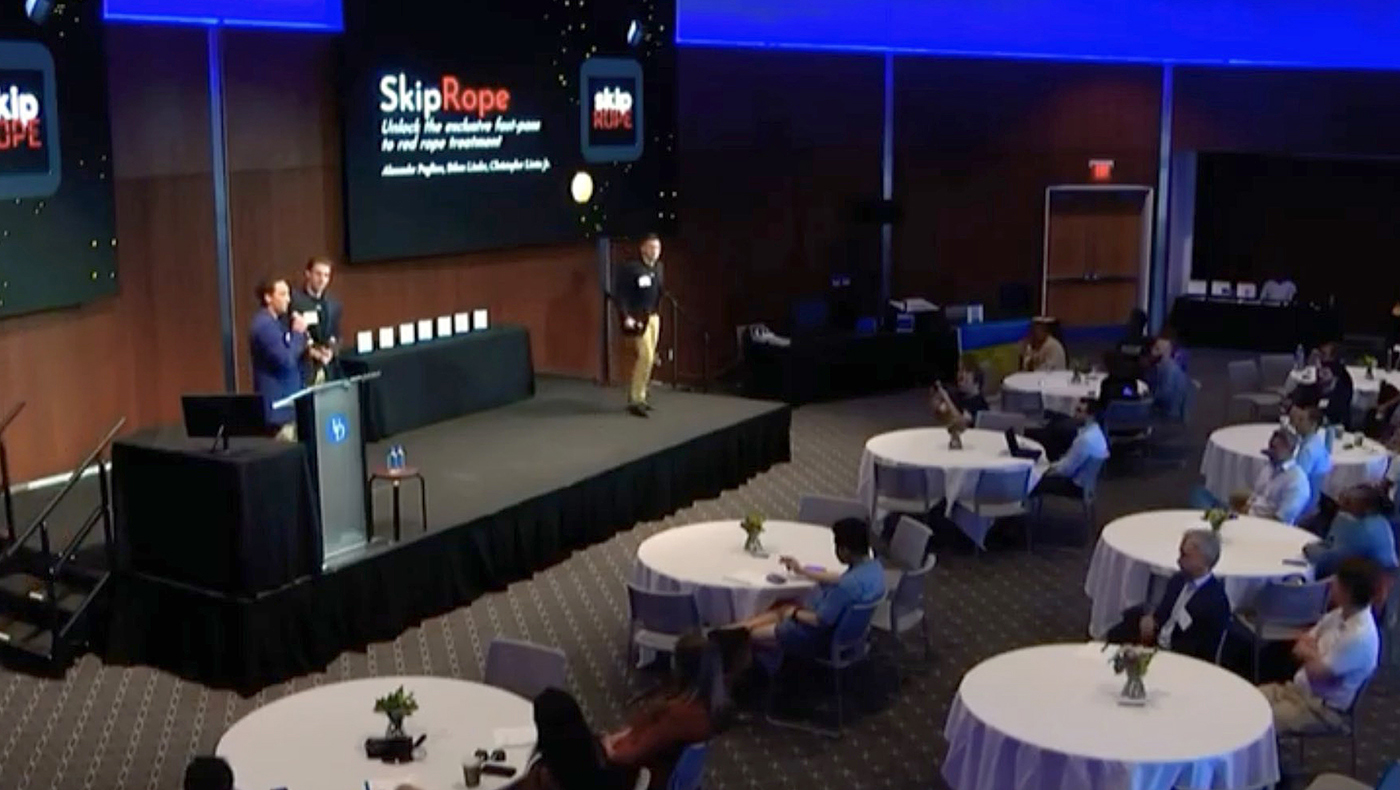Each summer, students from the University of Delaware’s Alfred Lerner College of Business and Economics acquire real-world professional skills through internships. In each installment of this series, an outstanding Lerner student will be profiled, sharing their internship experience, challenges they have overcome and what their future holds!
Alexander Pugliese, class of 2022, entrepreneurship major, pursued professional development this summer by participating in the Summer Founders program through the Horn Entrepreneurship program.
Lerner: How did you find out about this internship? Why did you pursue it?
Pugliese: When I first transferred to UD in 2020, I tried to get very involved with the Horn Entrepreneurship program and everything it had to offer. I got an email about Horn’s Summer Founders program and their Demo Day, which is the event where all the Summer Founders present their startup of what they were working on all Summer to a large audience of investors. Upon seeing this event I was inspired. I wanted to be a part of this program in the future and I’m glad I did, this was the best Summer of my life yet.
Lerner: What did you learn from this internship that you think you would not have learned elsewhere?
Pugliese: When pursuing a startup, there are a lot of things that come into play which may or may not be successful. For me, when I first started in the program, I wondered if it could be accomplished within my means, but that is not the case. It is traction. Traction refers to a startup’s customers validating your concept and confirming if they would be a customer and purchase your product or service, and this is done through verbal interviews. This is because the worst case scenario for a startup is to invest millions of dollars into this excellent idea on paper, but when you launch nobody purchases it. Traction prevents this from happening.
Lerner: What is the most exciting task or project that you have done or are currently doing in your role?
Pugliese: I am currently working and perfecting the pitch for Demo Day. This is something the team and I worked on since day one of the program. It is our responsibility to make sure that the pitch showcases exactly the value we are trying to bring to the market with our startup. We have 7 minutes to pitch on Demo Day and right now we are at 14 minutes. It is harder than it sounds when you are trying to squeeze everything into one pitch.
Lerner: What is an example of a time where you were able to apply what you’ve learned at Lerner to your role?
Pugliese: In my marketing class, we were working on a pitch for a project in the class. One of the segments we had to tackle was the customer segment. This is the demographic you are targeting to sell your product or service to. Talking about the customer segment in a pitch can be tough since the audience will either know exactly who you are talking about or they will not.
You could simply look up a generic photo on Google Images such as “lawyer guy”, but that won’t get you too far into the audience’s mind. A great tactic to relate to the audience in this case is to use pictures of fictional characters from popular movies or TV shows, in this case you can show a picture of Saul Goodman from “Better Call Saul”, a character most people know not only by his occupation but his character and values as a person of that demographic.
Lerner: How do you think this internship will push you closer to your professional goals?
Pugliese: If I never did Summer Founders I would be nowhere close to the stage we are at right now with SkipRope’s development, and I am extremely grateful for that. At Demo Day we are going to ask for a couple of things from the audience that will lead us towards launch, which is my professional goal.
Lerner: Did you face any challenges during your internship? If so, what was the issue and how did you overcome it?
Pugliese: One of the first and biggest goals in Summer Founders was to get the Deer Park Tavern as a potential customer for SkipRope. We would go to the restaurant in person once a week to try to talk to higher management and it never worked out. This was not until the end of the Summer during one of our advisory sessions, the advisor had a direct connection to one of the co-owners. From there we got in contact, had a meeting, and now we are planning on working with each other when we launch. You never know who someone else knows, so ask whoever because they might be able to make that connection you are looking for.
Lerner: What are your career plans once your internship ends?
Pugliese: Simply to keep pursuing SkipRope and its launch. To have been a part of Summer Founders was a gift of opportunities and resources from Horn. After Demo Day, it is my responsibility to pursue SkipRope into launch, and that is what we are doing right now.




